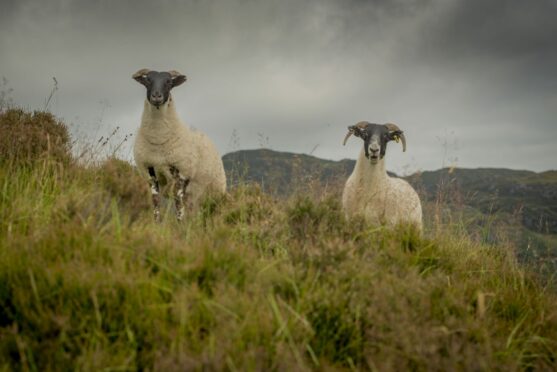A herbicide previously used to control bracken on hills and uplands has been banned this season despite it being granted emergency authorisation in England.
For the past 10 years, Asulox has been approved annually as part of an emergency authorisation process on behalf of the UK administrations by the Health and Safety Executive (HSE).
But, HSE now considers that the use of the herbicide does not meet the legislative requirements for emergency authorisation which has been agreed by Scottish ministers.
The announcement, which was made on the eve of the Royal Highland Show, has left industry leaders furious and questions will now be asked as to why rules have been bent across the border.
Scottish Conservative Shadow Rural Affairs Secretary Rachael Hamilton MSP said the decision was ”hugely disappointing” and one that will have major ramifications for rural livelihoods and for public health.
“I have repeatedly called on the SNP-Green government to approve the emergency use of Asulox to give our farmers and land managers the most effective tool to control bracken, and stop the spread of ticks which cause Lyme disease,” said Ms Hamilton.
“Instead, it looks as though once again the SNP-Green government have ignored the needs of our rural and remote communities. Their calls for approval have shamefully fallen on deaf ears.”
Speaking at the show yesterday, NFUS president Martin Kennedy said the decision made no sense and that the union is going immediately on matter.
“We need this decision to be reviewed urgently,” said Mr Kennedy,
“In the absence of any other viable alternative, the consequences of the ban, which will consign some of Scotland’s hillside to monocultures of tick-laden nature-depleted bracken has ramifications for farmers, crofters, rural communities, human health, and biodiversity.”
Rural Affairs Secretary Mairi Gougeon claimed that the Scottish government is acutely aware of the risks associated with uncontrolled bracken and said that the decision was not taken lightly, basing their position on scientific evidence.
“The HSE advice to all four nations of the UK was not to authorise the use of Asulox because of the risks it poses human, animal and environmental health,” said Ms Gougeon.
“Independent advice from the Chief Scientific Adviser and the Expert Committee on Pesticides supported this conclusion, and the Welsh government have confirmed that they too will follow the HSE advice.
“The Scottish government is committed to science based decision making and we have followed the same, well established and evidence based process we always follow for the authorisation of chemicals.”
Ms Gougeon said that support for bracken control through the Agri-Environment Climate Scheme (AECS) continues for 2023.
“Contracts for chemical and mechanical bracken control have been issued from the 2022 round of AECS which commence in 2023,” she added.
“Where contract holders had intended to undertake chemical control, we will offer flexibility to allow mechanical or manual activity.”
